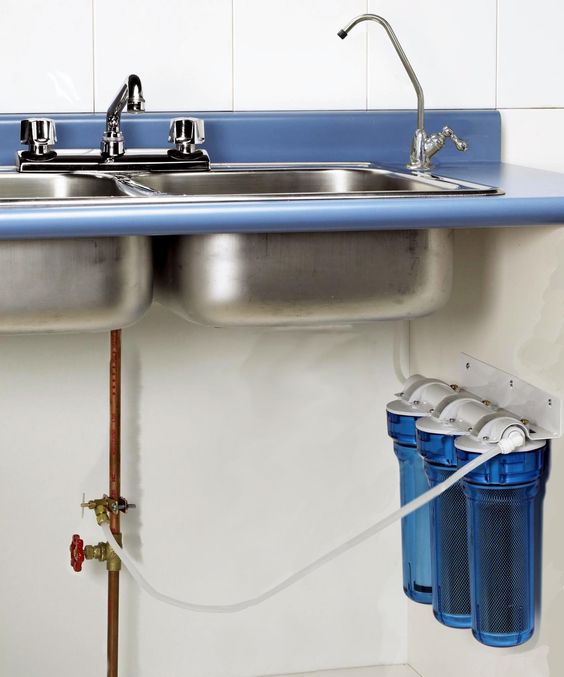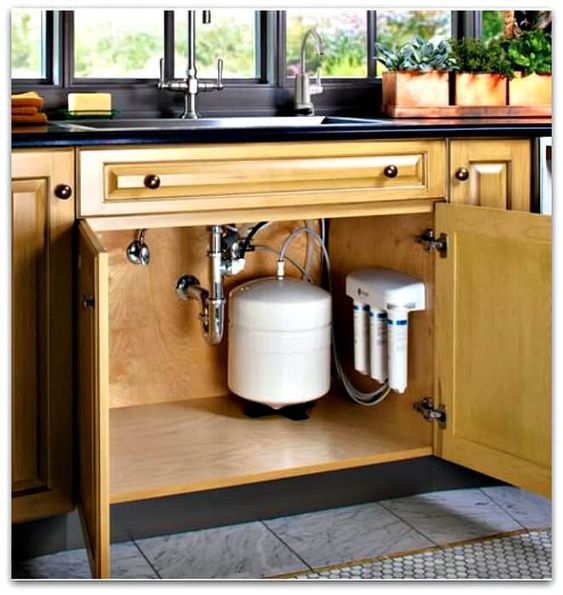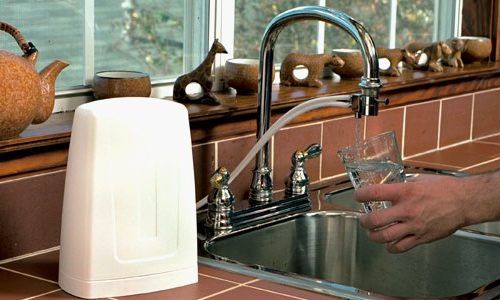
Home water filter reviews: here are the Top 5 models
More and more people are becoming aware of the possibility of contamination within their water system. And as the awareness increases, they are looking for ways to deal with this problem, and increasingly they are turning to water filtration systems. Water is such an essential part of our lives, and when we begin to think of the service that it provides to us, we realize how important it is for our water to be clean. Most water looks clean to the human eye, it is a clear liquid usually, and we don’t overthink about it. For those however who have given more consideration to their water quality and have had some testing done, a whole different picture has emerged. If you’d like to find out more, simply check out this review for more information and guidance.
Concerns about health risks related to water quality have become increasingly prevalent in recent times, with incidents such as the Camp Lejeune water contamination lawsuit shedding light on the potential dangers of polluted water sources. Homeowners are now more attentive to the need for clean and safe water. It’s crucial to address health risks associated with water contamination, as highlighted in cases like the Camp Lejeune lawsuit. When choosing a water filtration system, prioritize one that effectively tackles contaminants specific to your area. By addressing potential health risks, you ensure your family’s safety and well-being.

How to choose a water filter?
Your geographical location can dictate the type of water that you may have. In for example hard water areas, there is a mineral excess, and that can lead to not only problems for your health, but it can cause damage to appliances and cause an unsightly build-up of limescale, which is often evident in kettles and the shower area. It can be difficult to remove. We can find metals in certain water supplies. Also, in some areas, the water has had fluoride added and some people do not agree with that.

Sometimes the water is cloudy because it contains sedimentary matter and sometimes you may notice a nasty odor coming from the water; this can be caused by hydrogen sulfide (rotten egg smell) or maybe by decaying vegetation as the water passes through the ground en route to your faucet. Treatment plants use chlorine as a sanitizing agent, and some of our faucet water will contain residual amounts of chlorine. Treatment plants, although sophisticated, cannot guarantee that they will be able to kill every single microorganism and some remain in our water supply. When the water leaves the treatment facility, it has to pass through a network of pipes and pathways to reach our home; contamination is possible as it makes that journey.
Some people understand that their water is just not as pure as it could be and want to change that for themselves and opt for a water filtration system for their home. It is an idea to have a test completed on your water supply to find out if there are any particular issues that you want to target as different filters within the system target different problems within your water supply and armed with the report, it will help you decide upon the best system for you.
Carbon Filters
These remove particles of sediment and silt from your water supply. They remove the particles by absorbing them so that they are no longer a part of your water supply. They are also good at removing chlorine and bad smells from your supply.
You may hear this filter referred to as a ‘charcoal water filter.’
Reverse Osmosis
These water filters are good all-rounders, removing a lot of the ‘nasties’ from our supply. Reverse osmosis is a complicated system where water is pushed through a series of filters, removing the impurities and putting them in the drain.
Alkaline / Water Ionisers
These pass the water over plates which are electrically charged in a process known as electrolysis, separating it into two streams, one alkaline and the other acidic. The result is ‘softer’ water.
UV Filters
As the title suggests, they use ultraviolet radiation to destroy the various bacteria that may be entering your water system. It is a relatively new technology and requires no heat or chemicals.
Infrared Filters
These filters use heat and light to charge your water to make it ‘softer negatively’. It is useful in ‘hard water’ areas.
The type of filtration system that you will not only depend on the contaminants that you want to address but also on your budget and your lifestyle. Do you want a whole house filtration system? Can you afford an entire house filtration system? Or are you only looking to treat your tap water and if so what system would best fit your budget?
Remember when you are considering cost, consider savings, you will no longer need to buy bottled water, your hair and skin will be better, perhaps saving on some of the creams that you usually apply!
A Whole House water filter system
It is installed at the point where the main water line enters the home. As the name suggests, it filters all of the water that comes into your home. This means that all of your bathing and showering water will be filtered too.
An Under Sink water filter
This one uses reverse osmosis and offers an effective way of filtering your water. It installed under a kitchen sink to filter the water coming from the kitchen faucet. This will take to do with all of your cooking and drinking needs. However, it will not deal with showering or bathing needs.

There is also a faucet water filter, and as the name suggests, it attaches directly to your faucet. While a countertop water filter sits on the counter next to the sink. It connects to your kitchen faucet
Which one to choose?
All of the systems have their advantages and their disadvantages, and it is up to each person to consider their own particular needs.
You should know that just because you had met government standards when you had your water tested, it doesn’t mean that your water is clean. It simply means that the government has decided upon the acceptable levels of ‘contaminants’ in your water supply that they believe to be acceptable and that they believe will not cause health issues for the majority of the population.
It is difficult/impossible/expensive to treat water to the point that the water coming out of everyone’s faucet is pure and clean. We have to take our steps to do that for our own homes. It is essential that you educate yourself so that you understand the potential issues with water in your home. And then you should make a decision as to whether a water filter system would be a good idea for you. Look around, check the reviews, before making your final decision.
